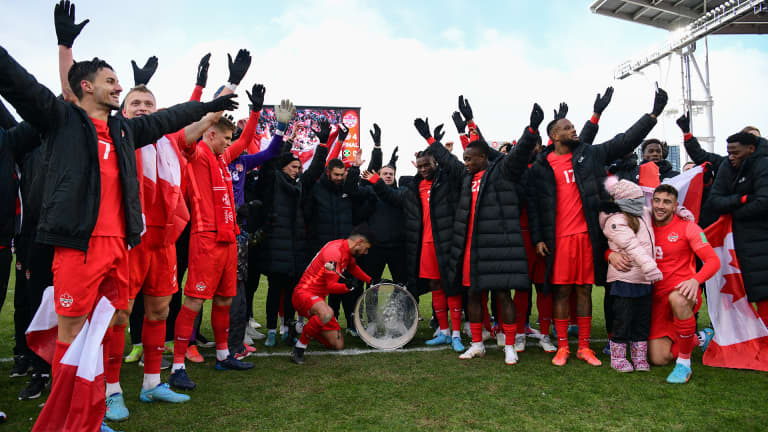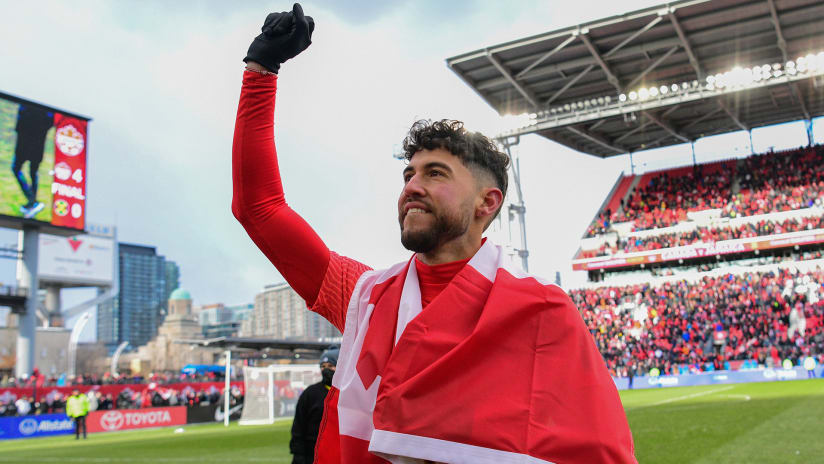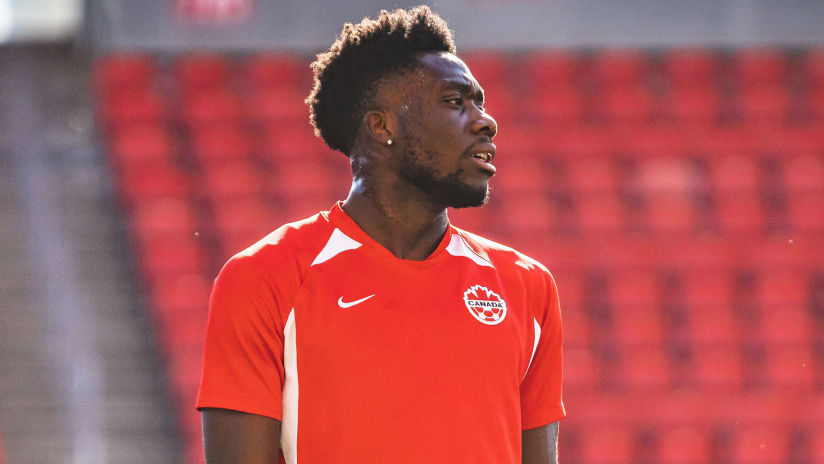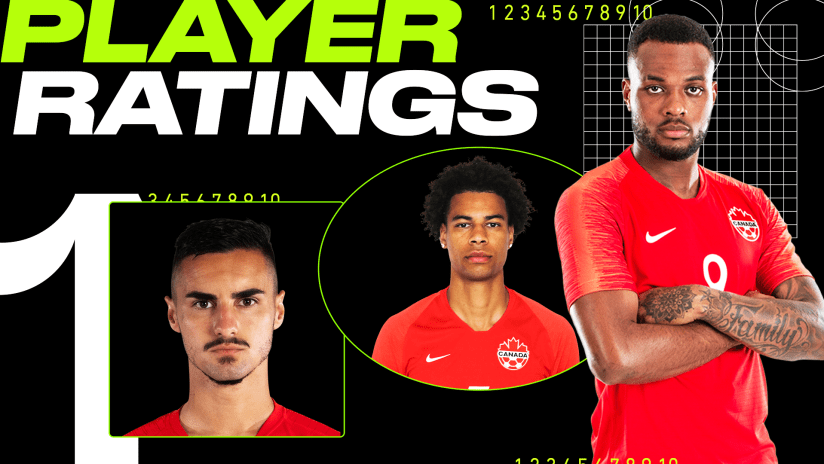No Canadian soccer fan will forget March 27, 2022 for the rest of their lives.
The scenes Sunday at BMO Field after the Canadian men’s national team officially qualified for the World Cup for the first time since 1986 were surreal. After so many years of heartbreak and “what ifs?” this team finally overcame the obstacles and celebrated accordingly.
Millions watched on TV. More than 29,000 packed Toronto FC’s home ground in what was a record crowd for a men’s national team game in the venue’s history. They watched a Canadian men’s team put four goals past Jamaica in a final-round World Cup qualifier.
None of these facts were close to being realities prior to the autumn. Yet there is a groundswell of support for Canadian soccer that has never been experienced before.
"It will change the country forever and our sport forever,” said Canada coach John Herdman in the immediate aftermath of the 4-0 win over Jamaica. “We have got to capture the moment. This is what I am saying. Our leaders, the organization, we have to capture this moment and we will set this country up for the next 20 or 30 years."
Huge "boost" coming
With FIFA paying Canada Soccer a windfall of approximately $15 million, that is a far cry from the federation’s usual budget. Normally, it receives around $4 million per year via the federal government.
That influx of cash will have lasting ramifications on the sport in Canada.
“I take example of our neighbors the USA,” former national team player Patrice Bernier told MLSsoccer.com. “They have been at several World Cups since 1994 and that has generated most likely probably hundreds of millions of dollars just by going to the World Cup. Then after that, it is the boost, the engagement, the sponsors that now want to connect, collaborate, be part of the movement and that allows for everything to be put into grassroots soccer, coaching, infrastructures, growing the leagues, the clubs, the women's game, all of that."

The impact of this qualification may not be felt for years. But in the moment, it’s a wonderful achievement for this group of players.
From taking eight of 12 points from Mexico and the United States to going 11 games unbeaten in the Octagonal, while maintaining the best attack and defense in Concacaf, it’s been a rapid rise.
No one in Canada foresaw this dominant of a qualifying cycle. The talent was always apparent, yet the execution was lacking. It was the story of Canadian soccer for decades. Despite winning the Gold Cup in 2000 or reaching the semifinals in 2007 before losing controversially to the US, it never translated to a World Cup berth.
The likes of Bernier, Paul Stalteri, Julian de Guzman, Tomasz Radzinski and Craig Forrest all played in top-five European leagues. Dwayne De Rosario was also excelling in MLS during his prime in the 2000s, so it was not always a talent issue.
“I think everybody was skeptical,” said Bernier, a CF Montréal all-time great. “Our past has told us and having been a part of it, that there has always been a hump. There has always been an obstacle. There has always been a frustrating or a dark moment that told us, again, we are not going again.
“Now it is actually sustained. The mindset of this group, the mission every game, every moment, every victory or every moment of adversity, you felt that they believed. They had jumped in. They were latched onto the promise and the hope of making it to the World Cup."
World Cup draw awaits
Canada have one final qualifier to play against Panama on Wednesday evening (9:05 pm ET | OneSoccer, Paramount+), with a chance to bolster their World Cup seeding ahead of the Qatar 2022 draw on Friday. Currently, the Canadians are slated for Pot 4.
But a win over Panama and a certain combination of results in African qualifying could lift Canada into Pot 3, which could lead to a more balanced group.
Whatever occurs between now and Friday, Canada have developed the mental resolve and adversity to be a tough out for any opponent it faces.
"If you look at the last World Cups or the last Euros, you see teams that nobody necessarily expected to perform,” Bernier said. “When you are talking about Canada, people are going to be paying attention. They will have that respect because Alphonso [Davies] plays at Bayern Munich. They see him playing in Champions League. Jonathan David, same thing.
"They are going to be like 'ok, we may be better than them, but we have got to be aware' because they have got a few talents that could catch you by surprise if you are not at the top of your game."

“Atiba! Atiba!”
As thrilled as every player, coach and Canadian was to witness qualification, nobody deserved it more than Atiba Hutchinson. The 39-year-old, the all-time appearances leader in team history, checked into Sunday’s match in the 62nd minute to thunderous applause and chants of “Atiba! Atiba!” ringing along the Lake Ontario shore. During the full-time festivities, Hutchinson received another loud ovation from the sold-out crowd as he was noticeably choked up.
The veteran’s contract with Besiktas is set to expire in June, so his club future in Turkey remains uncertain. But given how consistently brilliant he plays, Hutchinson will surely resolve that issue soon.
Should he make the squad, it will be a passing-of-the-torch moment. Hutchinson is one of the last remaining players from those dark days of the 8-1 loss in Honduras during the 2014 cycle and countless other painful moments. Now he can ride out his career on a high note.
Even though Hutchinson continues to be a valued member of the team, there was a distinct possibility of him retiring far sooner than anticipated.
“I remember a conversation with him about six years ago where he was not even sure he was going to keep playing as long as he is now,” said Berner. "Now he gets to be the last warrior of the past carrying all of that weight and bring his experience with this new group."
What an experience that will be in less than eight months’ time.














